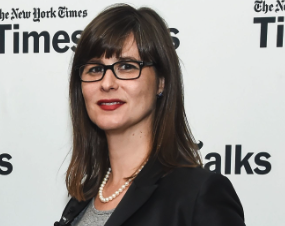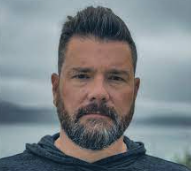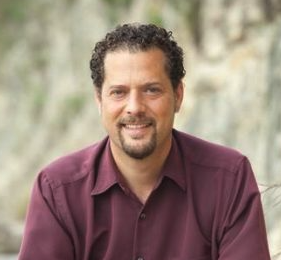Meet the Top 12 Climate Journalists Leading the Conversation in 2023
At Silverline, our unwavering commitment to the clean energy transition is reinforced by the expertise of top climate journalists who are dedicated to illuminating the pressing challenges and transformations presented by the global climate crisis.
Through their reporting, these top 12 climate journalists have made a profound impact on the Silverline team and on their readers, providing valuable insights, uncovering truths, and driving public discourse. Their relentless pursuit of fact-based reporting and their ability to communicate complex environmental issues in a compelling manner have cemented their positions as influential voices in climate journalism. Here’s who we’re following:
Climate Impact: Justin Worland, TIME: The Washington D.C.-based correspondent has gained recognition for his comprehensive and thought-provoking reporting on a wide range of climate matters. In addition to his contributions to TIME, his in-depth analyses can be found in the weekly newsletter TIMECO2 Leadership Report, in which he provides “fresh perspective and insight on the most important conversations happening at the intersection of climate and business, finance, and markets.”
Energy Policy: Coral Davenport, The New York Times: Coral stands out for her incisive coverage of climate policy and its intersection with private industry. Throughout her tenure, her analytical approach has unpacked the policies of four presidential administrations that have shaped climate action, illuminating the challenges and opportunities that lie ahead.
Politics of Emerging Climate Tech: David Iaconangelo, E&E News: Politico’s E&E News publications have proven to be a must-read for those at the intersection of climate and policy. David Iaconangelo writes from a unique perspective, covering emerging climate technology. His focus on federal and state legislation that may enable or inhibit these new technologies is widely read and syndicated in publications such as Scientific American.
International Climate Action: Tim McDonnell, Semafor: While Semafor is just under a year old, it’s clear that Tim McDonnell’s Net Zero newsletter covers the top-line international climate stories expertly. Semafor’s news format allows for journalists to provide their perspectives while readers gain insights from Tim’s decade-long career covering climate for publications such as The New York Times, NPR and National Geographic, among others.
Transmission Transition: Katherine Blunt, Wall Street Journal: Katherine’s latest book, California Burning, describes what the Los Angeles Times calls a “bleak” history of utility provider PG&E. Her fearless reporting on utility corporations, wildfires and drought during the transition to renewable energy earned her a place as a finalist for the 2020 Pulitzer Prize for National Reporter and earned a Gerald Loeb award.
Climate Investing: Kim Zou, CTVC (Climate Tech Venture Capital): Climate tech investment has exploded, and the CTVC newsletter has become a necessity for tracking venture capital’s action in the space. While the platform only started in 2020, a recent $1.75 million investment paves the way to transform it into a full-fledged climate intelligence platform that “expands beyond the inbox.”
Business of Climate Change: Nathaniel (Nat) Bullard, Bloomberg: As a senior contributor of Bloomberg Green’s newsletter, which has over 250,000 subscribers, Nat’s 15+ years of experience in climate technology and capital markets has distinguished him as an expert in the business of climate change. Nat is a highly respected and award-winning journalist who has made significant contributions to the field of energy and climate reporting.
The Climate Reporter’s Climate Reporter: Sammy Roth, Los Angeles Times: With a keen focus on environmental justice and the intersectionality of the impact of climate change, Roth's articles go beyond just presenting facts and figures. He consistently highlights the human stories behind the environmental crisis, shedding light on the disproportionate impacts faced by marginalized communities. The Boiling Point newsletter is a prime example of how Sammy is redefining the way the climate is reported on.
Local Energy Perspectives: Russell Gold, Texas Monthly: Russell has been instrumental in shedding light on the climate challenges in Texas. His reporting on the intersection of climate, energy, and politics in Texas has sparked crucial conversations and contributed to efforts to reshape the state's approach to climate change, including his coverage of the Deepwater Horizon oil spill that earned him a spot as a Pulitzer Prize finalist.
Environmental Justice: Emily Atkin, Heated: The founder of the newsletter Heated has captured the attention of readers with her powerful writing and fierce advocacy for climate justice. Through her fearless investigative journalism, she delves into the political, social, and economic aspects of climate change, empowering individuals to take meaningful action.
Deep Dive: Jeff St. John, Canary Media: As a headline name on industry-favorite Canary Media’s newsletter, Jeff provides meticulous descriptions of new, clean technologies that help to redefine our understanding of the clean energy transition. In addition, his coverage of regulatory challenges, especially pertaining to transmission, provides a detailed perspective of how the application of emerging technologies will be realistically implemented.
Podcast: Akshat Rathi, Bloomberg Zero: This interview-style podcast explores the solutions that are driving a net-zero future as the world fights climate change. From flying cars to COP28, Akshat goes toe-to-toe with start-up, corporate and political leaders who are accelerating the adoption of clean energy on a global scale.
These 12 climate journalists, each with their unique perspectives and areas of expertise, have made an indelible mark on reporting during a decisive time in our global fight against climate change. Through their tireless efforts, they have elevated the discourse surrounding climate change, mobilizing communities, and inspiring meaningful action. Their unwavering dedication to reporting on these critical issues ensures that their impact will continue as we collectively work toward a more sustainable and resilient future.












